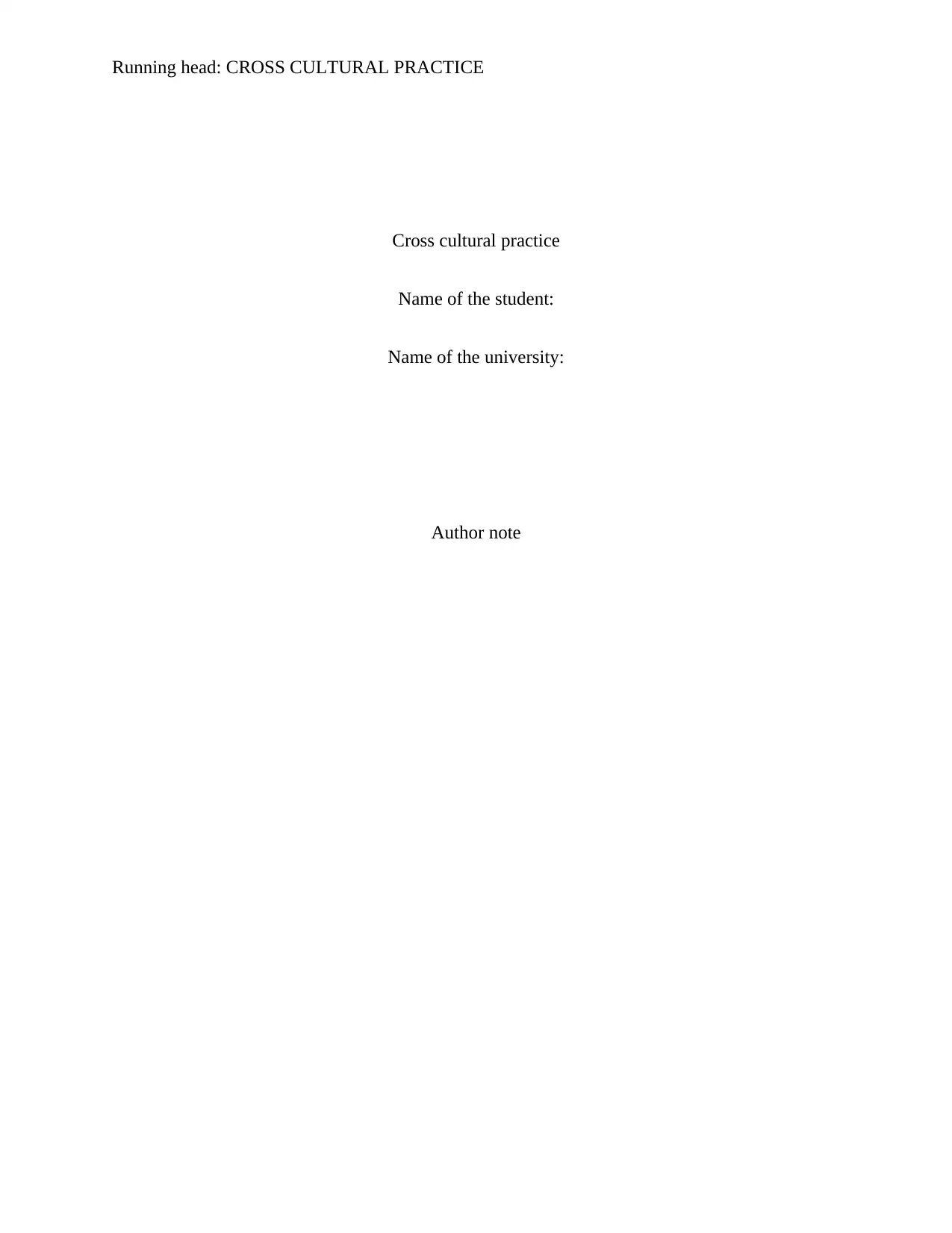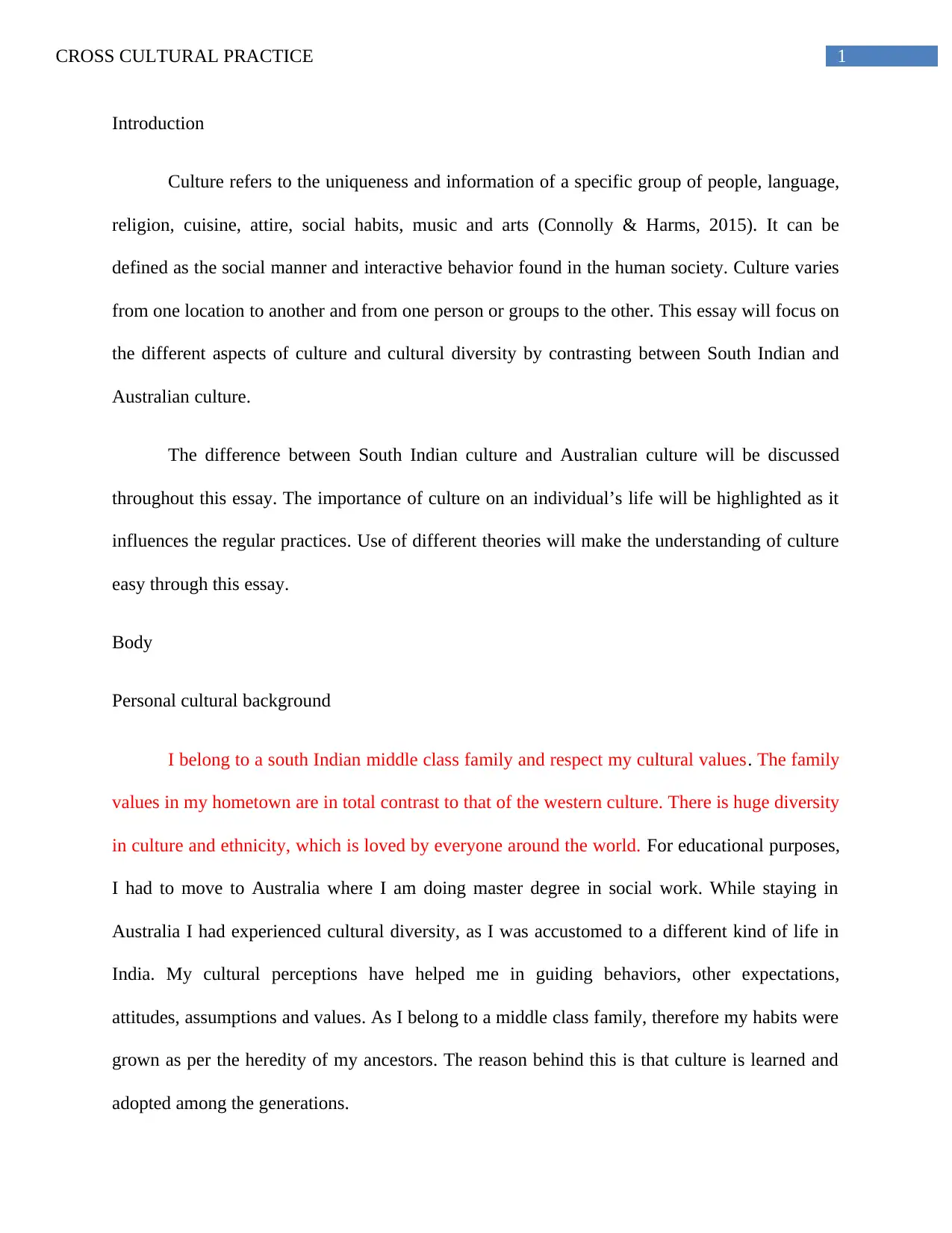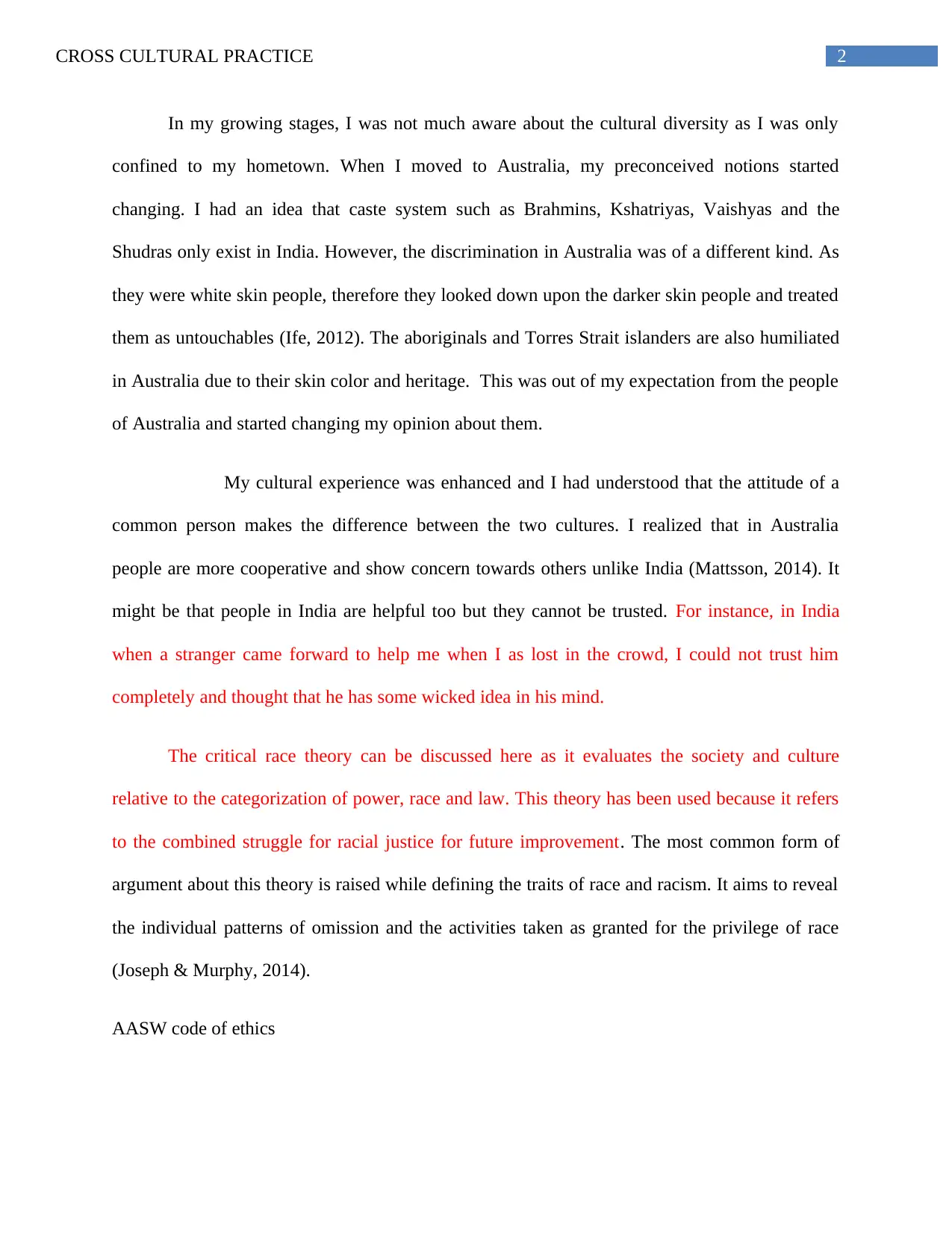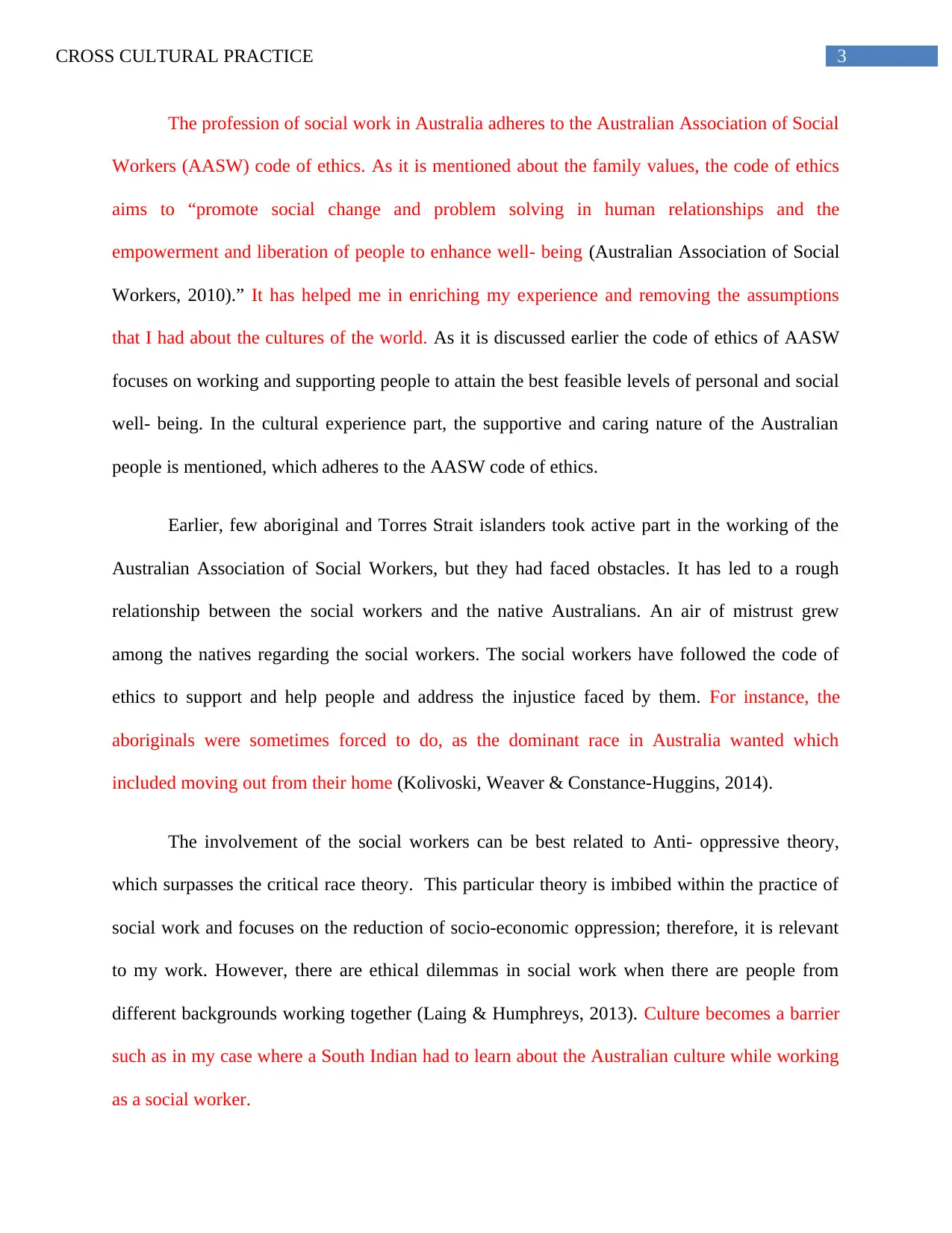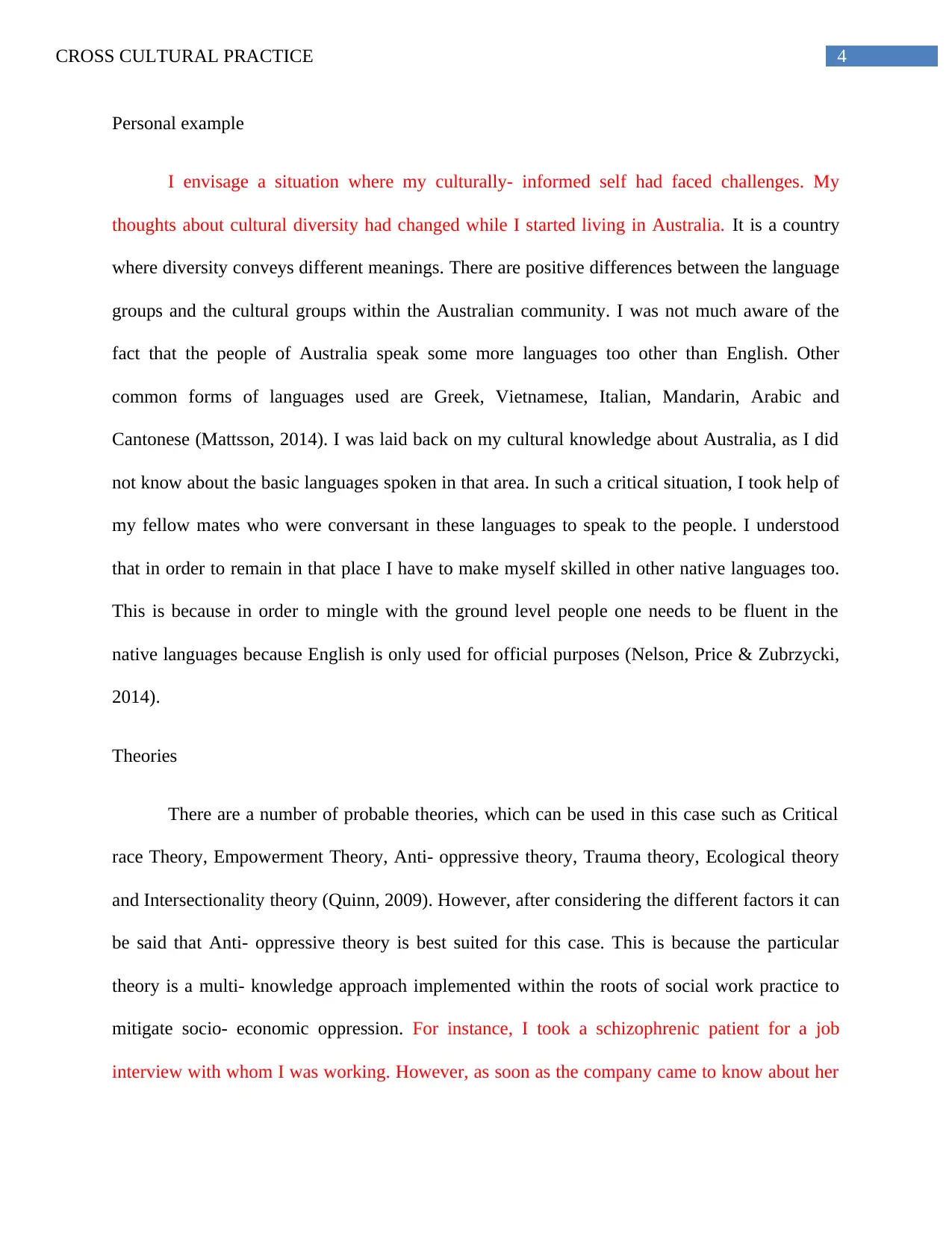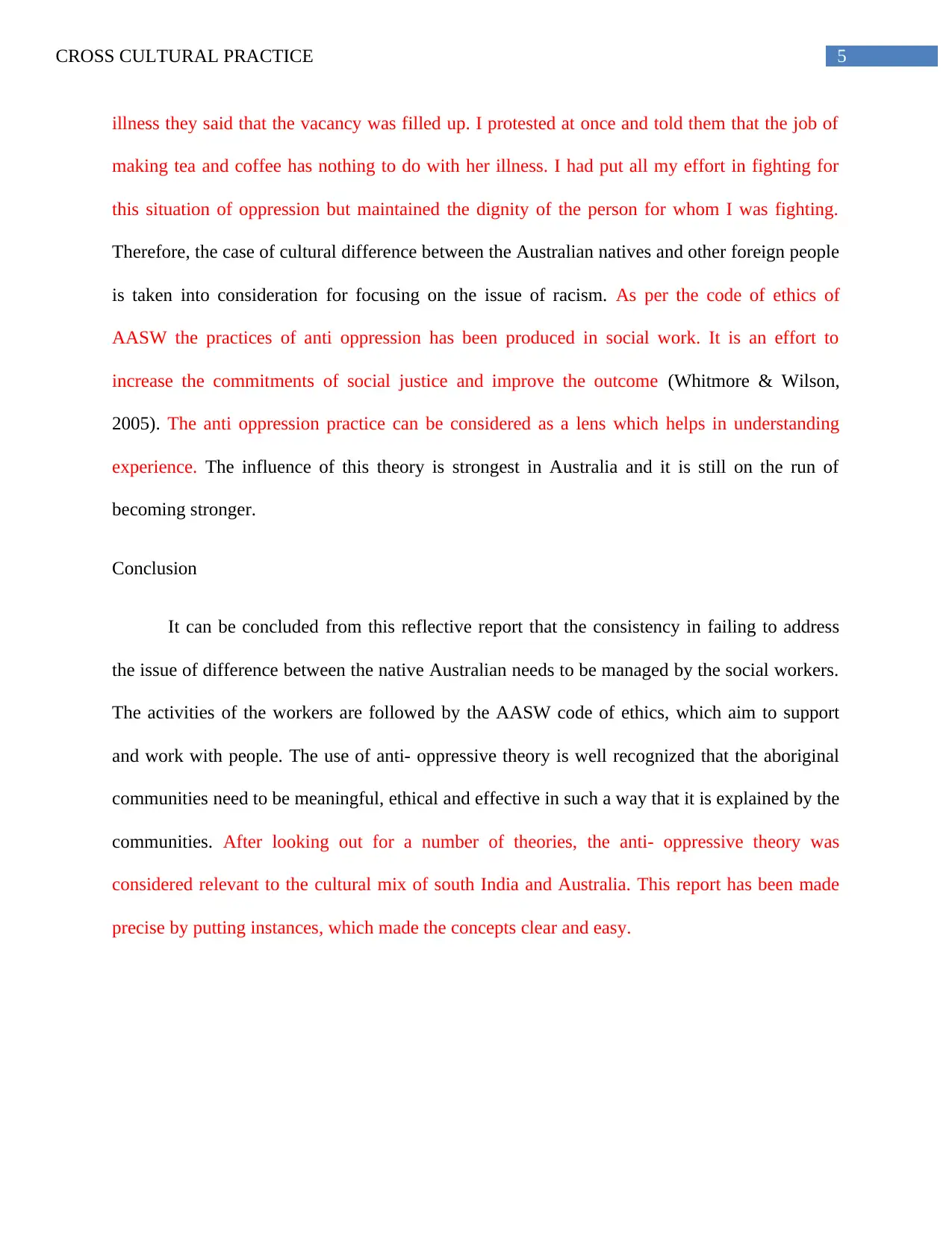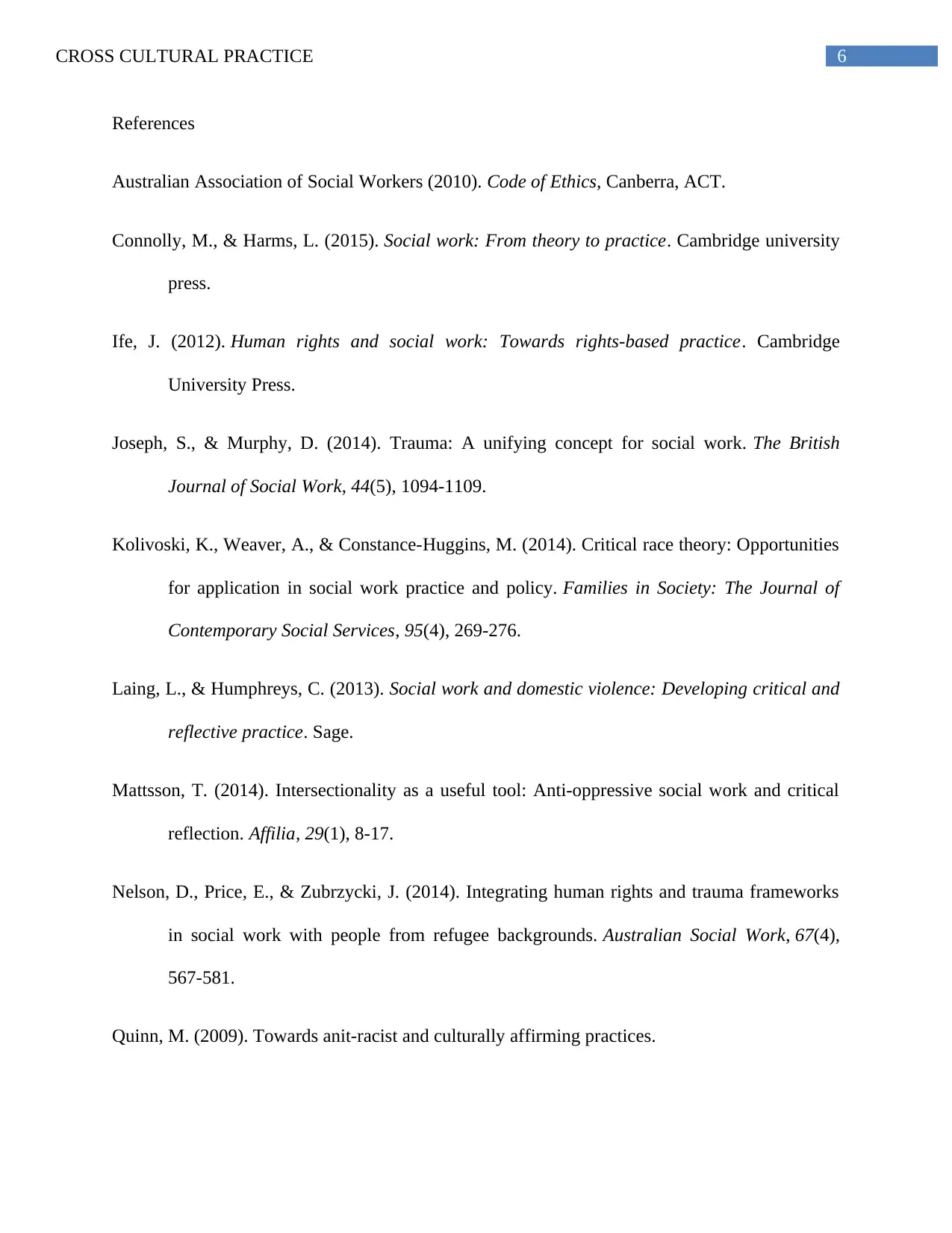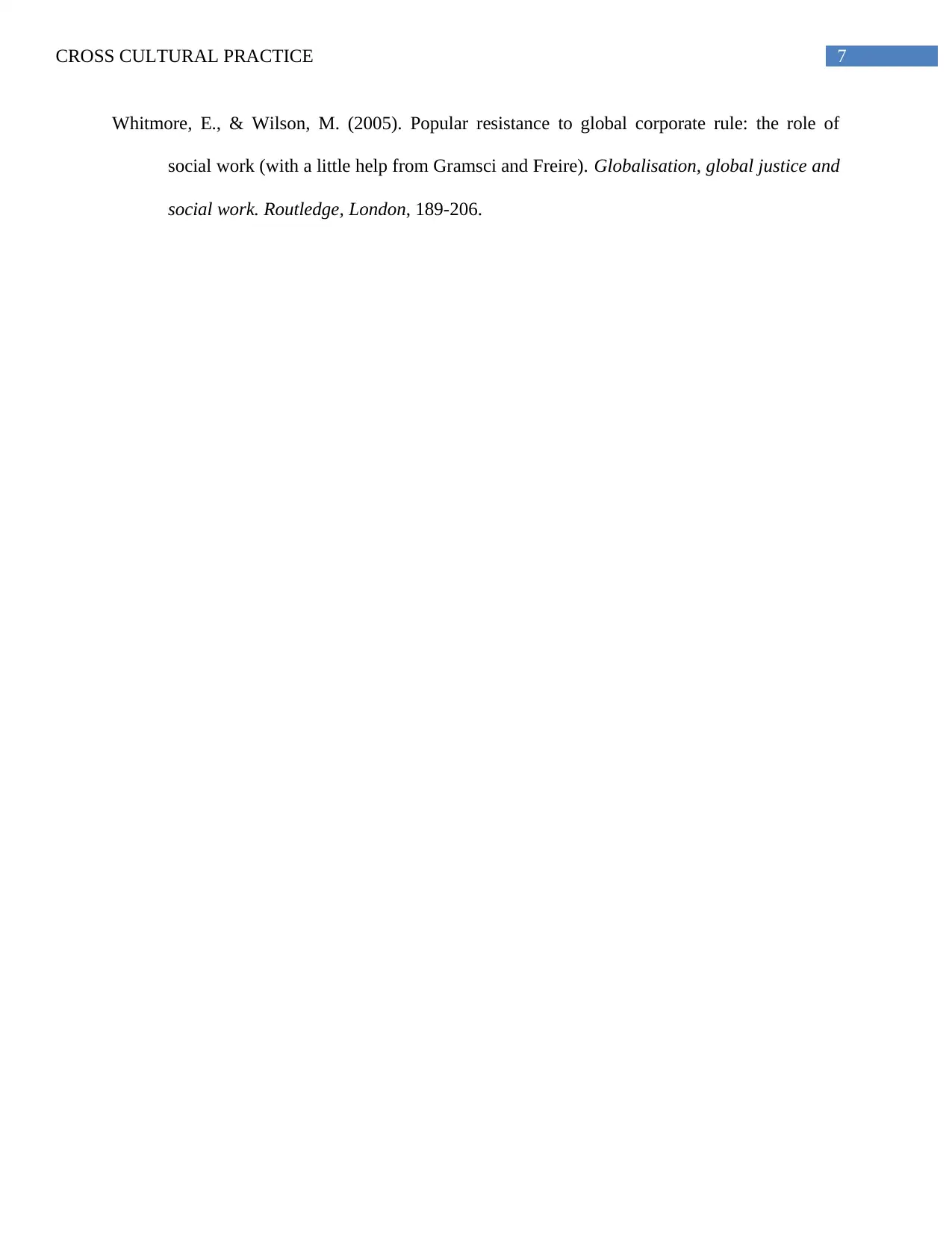This reflective report discusses the use of anti-oppressive theory in social work practice, focusing on its application in a scenario involving cultural difference between Australian natives and foreign people. The report highlights the importance of addressing racism and promoting social justice through anti-oppressive practice, which is rooted in the code of ethics of the Australian Association of Social Workers (AASW). The report also explores various theories relevant to this context, including critical race theory, empowerment theory, trauma theory, ecological theory, and intersectionality theory. However, it concludes that anti-oppressive theory is the most suitable approach for addressing cultural differences in social work practice.
![[object Object]](/_next/static/media/star-bottom.7253800d.svg)
![[object Object]](/_next/static/media/star-bottom.7253800d.svg)
